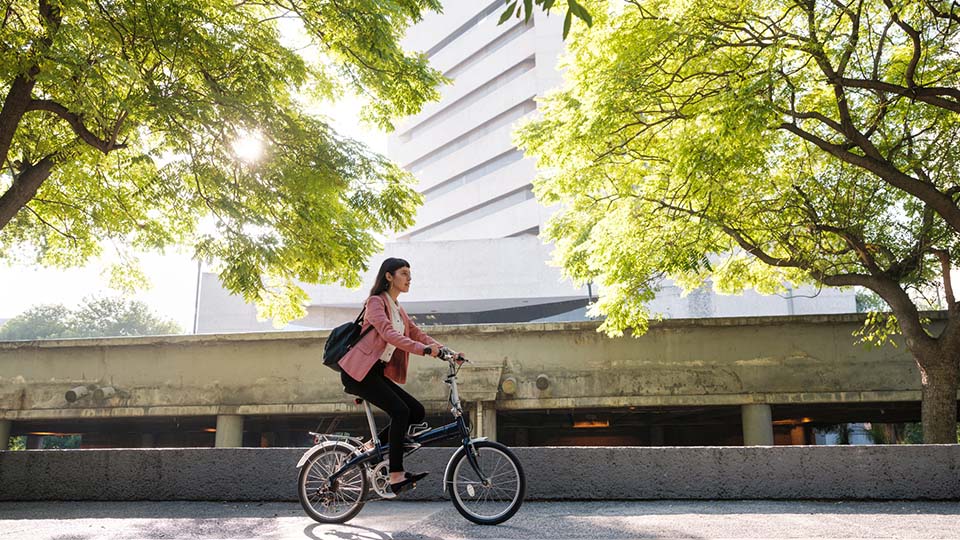

This article was made possible thanks to Soulara, a plant-powered nutrition program that specialises in creating superfood packed meals that are both good for you and aligned with your values.
For many of us, time is a precious commodity. Between work deadlines, school drop-offs, weekend catch-ups, and trying to squeeze in a workout or two, most of us feel like we’re constantly on the go.
But when life is fast, some important things often fall by the wayside. One of which is the need to live sustainably.
Let’s be clear: we all need to live more sustainably. If we don’t, we won’t improve our air quality, conserve natural resources, or slow down climate change.
But what needs to be realised is that living sustainably doesn’t have to mean completely overhauling our lives. Instead, with a few conscious choices, we can all reduce our impact on the environment to make the world a better place.
If you’re a busy professional, parent, or simply someone trying to juggle it all, here are eight realistic, time-saving ways to live more sustainably without sacrificing a big investment of your time.
1. Switch to a plant-based diet
Most of us, on average, eat at least two meals a day. That equates to about 730 a year, not including snacks and treats. Over the course of 20 years, that is just shy of 15,000 meal times, which, if you are a meat-eater, will undoubtedly consist of a lot of animals and related products.
With that in mind, one of the easiest ways to live more sustainably is by changing what you eat. A plant-based diet is not only good for your health but also much better for the environment.
The great thing about a plant-based diet is that vegetable dishes are usually much quicker to cook than meat-based meals, which saves you a lot of time. They are also not usually as messy to make.
If you are not much of a cook and you want to switch to a plant-based diet, companies like Soulara run a ready-meal delivery service that brings delicious, eco-friendly meals straight to your door.
For people who are short on time, they provide a brilliant way to reduce their carbon footprint by cutting down on meat consumption, packaging waste and food miles, all while enjoying nutritious meals.
2. Prioritise sustainable fashion
Fast fashion is a huge contributor to environmental damage. According to Earth.org, more than 100 billion garments are produced every year, of which approximately 92 million tonnes end up in landfills.
Instead of buying something new for every event and having a wardrobe full of clothes you hardly wear, consider making a stand by looking for ethical consumption alternatives.
Choose brands (particularly Australian) that focus on minimalist choices, natural fibres, and fair labour. Better yet, consider joining a clothing swap group, donating and buying from second-hand shops, or renting clothes for a special occasion. Doing this will save you a tidy sum of money and reduce the level of waste you produce without resorting to looking like a dag!
3. Make eco swaps in the bathroom
The bathroom is another area where you can lose track of the need to be sustainable. However, there are plenty of small switches you can make to reduce your carbon footprint.
Why not swap your shampoo bottle for a shampoo bar? Likewise, use bamboo toothbrushes and choose low-waste living products, such as refillable deodorants, menstrual cups, or recycled toilet paper.
You don’t need to go out and change everything overnight. However, if you gradually replace items you run out of with greener choices, you will do your bit to create a better planet for all of us to enjoy.
Need more ideas? Here are five simple eco-friendly swaps for the bathroom.
4. Coffee
Aussies love a daily latte or flat white. Indeed, as a nation, each of us consumes on average 1.91 kilograms of coffee each year. Unfortunately, we love coffee so much that an estimated one billion single-use coffee cups end up in landfills every year, doing untold damage to the environment.
For this reason, it is worth investing in a reusable coffee cup. Most cafes will be happy to make the brew for you in your own cup, and some will even offer a discount as an incentive.
It’s a small change, but if everyone made it, it would drastically reduce single-use plastic waste over time.
5. Shop local when you can
Whether it’s your produce, skincare or wine, buying local will not only support Aussie businesses but also reduce your carbon footprint.
Local products generally travel fewer kilometres, so less energy and emissions are expended in bringing them to you. Additionally, with so many brilliant Aussie brands embracing green alternatives, it’s now easier than ever to shop sustainably without adding time to your schedule.
6. Use public transport or carpool
Not everyone can ditch the car completely. But swapping just one or two solo drives a week for public transport, cycling, walking or carpooling can make a huge impact.
Some workplaces now even offer incentives for low-carbon commuting. It’s a great way to reduce your environmental impact and save money on fuel while you’re at it.
7. Choose green energy providers
If you haven’t already, consider switching to a renewable energy plan. Aussie providers like Powershop, Energy Locals, and Amber offer sustainable options for powering your home.
The best part about making the switch is that it is a set-and-forget solution. This means your sustainable lifestyle gets a major boost without costing you a lot of your time.
8. Go digital where it counts
According to Forbes, an estimated 10.656 billion paper receipts are produced in Australia each year. This requires 150,462 trees to be chopped down.
All of this can be avoided just by opting to receive digital receipts and paperless billing, and signing up for online banking.
Sponsored

This article was made possible thanks to Soulara, a plant-powered nutrition program that specialises in creating superfood packed meals that are both good for you and aligned with your values.
We have a request
SHE DEFINED’s journalism is independent and we’re committed to elevating the voices of women by putting them front-and-centre in our stories and giving them a platform to speak up.
Quality journalism and editorial content takes time, money and resources to create, which is why your support matters. We don’t have a paywall or exclusive subscriptions because we believe in keeping our stories open to everyone.
Help support our mission by making a financial contribution today.






